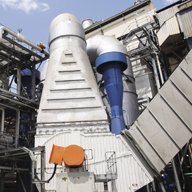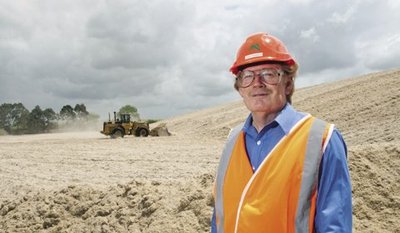Mackay Sugar powers on - efficiently
Wednesday, 05 June, 2013
Mackay Sugar produces 800,000 tonnes of sugar each year. But in doing so, it produces enough carbon emissions to place it among Australia’s top emitters - and is subject to an annual carbon liability of $1.7 million.
In 2011, the company’s senior management developed a proposal to reduce carbon emissions and improve energy efficiency across its Farleigh, Marian and Racecourse mills in Queensland.
A $9.1 million grant from the Australian Government’s Clean Technology Food and Foundries Investment Program means Mackay Sugar can now put its plans into action.

The company is using the funding to upgrade a boiler at its Marian Mill and construct bagasse outloading facilities at Marian and Farleigh. This will ensure the bagasse it produces is used more efficiently and will allow the company to transport more of the material to its Racecourse Mill.
Bagasse is a by-product of the sugar cane crushing process that can be used as a boiler fuel, making the mills self-sufficient in energy use.
The upgraded boiler at Marian Mill will use bagasse even more efficiently. And by improving the way it supplies, transports and stores surplus bagasse on site, through the new outloading facilities, Mackay Sugar can reduce its reliance on coal and cut overall carbon emissions.

The grant also partly funds the construction of a new cogeneration facility at the Racecourse Mill. This project will allow the company to burn bagasse more efficiently and produce enough renewable energy for the Queensland grid to meet one-third of Mackay City’s power needs.
“We are very grateful to have received the grant as it has allowed us to cement these current projects,” said Mackay Sugar’s Business Development Manager, John Hodgson. “We think our resources in the sugar industry, particularly bagasse, allow us to contribute to an environmentally sustainable future and build shareholder value.”
The combination of these measures could extinguish Mackay Sugar’s carbon liabilities by June 2014. Further, by undertaking these projects, the company expects to reduce its carbon emissions intensity by 71% per tonne of sugar, while improving its energy efficiency by 14.9% per tonne of sugar.
And the benefits of the grant funding go beyond environmental sustainability. They’re also about securing a promising future for the 130-year-old company. The grant is allowing Mackay Sugar to explore potential opportunities in producing bioethanol and biodiesel, as well as reducing its costs through electricity cogeneration, to give the company a sustainable platform for growth into the future.
“Longer term, we don’t think the sugar industry can rely on just producing and marketing sugar,” said Hodgson.
Turning sustainability into an advantage in food and beverage
Nearly half of all Australian shoppers are influenced by sustainability when making purchases,...
The 'flour effect' pathway to Scope 3 emission cuts
An Australian Study reveals how a simple ingredient could become a climate solution for food...
Whey to go up: unlocking further potential for cheese by-product
A new mixed-method study explored four models that could provide potential for the Australian...











